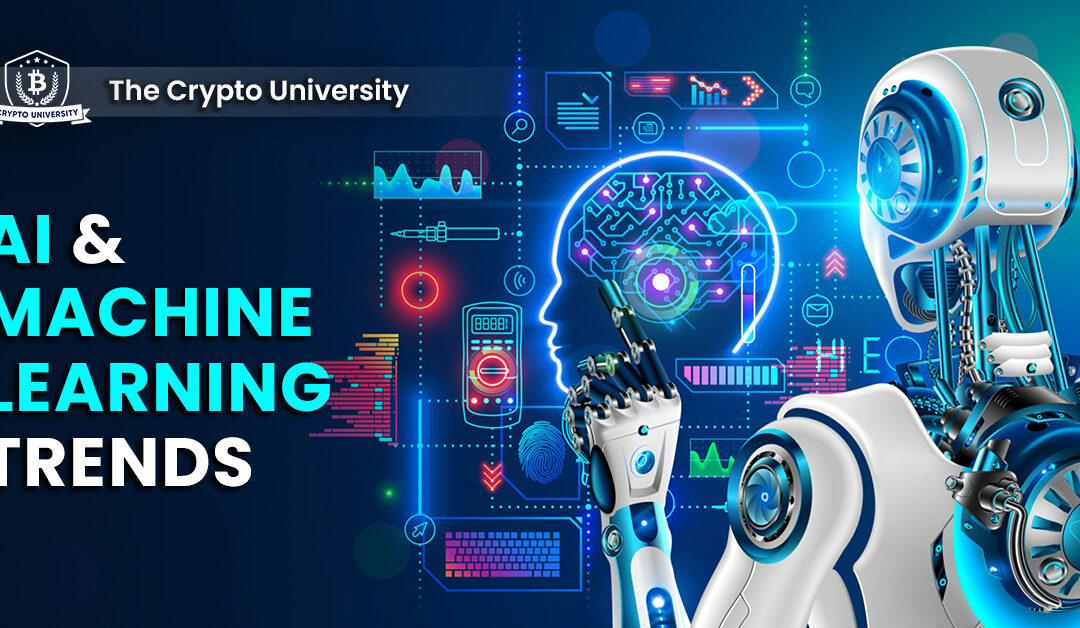Contents
- Investments in AI reach a new threshold
- AI will be a Boon for Customer activities
- AI will make back offices and operations smarter
- Abundant jobs in AI
Trends driving the need for AI and machine learning expertise have proven to be a disruptive force. AI, especially its machine learning and deep learning subcategories, has completely revolutionized several industries and internal business procedures.
According to a recent Harvard Business Review (HBR) survey, thirty percent of participants believe artificial intelligence (AI) will impact their businesses most over the next five years. Technology teams that want to stay at the forefront of trends in industry change need deep experience in AI and machine learning since AI affects many of the foundations that enable digital transformation.
The following are some major developments influencing AI upskilling in the workplace:
Investments in AI reach a new threshold
A few years ago, businesses were only beginning to dabble in the field of artificial intelligence. The HBR report now projects that corporate investment in AI technologies will reach a $100 billion market by 2025. However, this rise that is expected is just the start. Machine learning advances are expanding at a phenomenal rate this year, according to Deloitte’s Technology, Media, and Telecommunications Predictions 2018 study.
However, the analysis also notes that the speed of advancement will be so rapid that, in 50 years, current discoveries will be viewed as “baby steps.” Businesses that create and apply AI technology will face a critical skills gap as firms increase their investments in the technology unless they can upskill their personnel to fully utilize AI’s incredible abilities.
AI will be a Boon for Customer activities
Nothing is more important to today’s customer-focused businesses than being able to effectively target, sell to, and serve their customer bases while maintaining their brand engagement. AI is currently being used or considered for use in sales forecasting and email marketing, according to 87% of adopters.
Artificial intelligence (AI) improves data science in marketing by aiding marketers in identifying the most suitable email messages for specific audiences. Additionally, AI helps sales teams create more precise sales projections by analyzing shifting customer and regional trends, delivery capabilities, and projected product or service renewals.
Furthermore, 44 percent of consumers now prefer online chatbots over human customer service representatives, giving businesses plenty of opportunity to use AI to enhance customer loyalty, pleasure, and retention in a quicker and far more effective manner.
AI will make back offices and operations smarter
To bring intelligence to everything from industrial operations to IT, finance, and even human resources, businesses are looking at AI with great interest. In a different HBR survey, slightly more than half of AI leaders projected that by 2020, AI will mostly affect their internal back-office operations, such as IT and finance/accounting. AI is contributing even in less technical fields.
Glassdoor reports that the HR industry utilizes artificial intelligence (AI) to craft unbiased job descriptions, manage routine tasks such as scheduling interviews, and link applicants with available positions.
A new generation of robotic processing automation (RPA) employs advanced AI, utilizing software-driven robots to acquire and interpret data from applications already in use for transaction processing, data manipulation, reaction triggering, and digital system communication.
The global market for RPA software and services is expected to reach $1.2 billion by 2021, growing at a compound annual rate of 36%. RPA bots may automate simple operations and open up a wide range of data sources for AI to access. AI can then learn from the data gathered from the RPA to replicate and enhance the processes.
Abundant Jobs in AI
Gartner predicts that 80% of data scientists will use deep learning as a tool this year. There will be a steady increase in the number of jobs that use AI, machine learning, and deep learning in their daily operations. According to Forbes, over the past five years, the number of professions requiring AI expertise has increased by 4.5 times. The data science industry will be most affected.
Online upskilling programs are already in high demand for AI engineers who can use a variety of intelligent agents to create useful applications, such as knowledge-based systems and agent decision-making functions; machine learning experts who can handle mathematical and heuristic techniques and practical modeling to develop machine learning algorithms; and deep learning experts who can become proficient in TensorFlow, an open-source software library used for deep neural network and machine learning research.
“Artificial intelligence is probably the most important thing humanity has ever worked on,” stated Sundar Pichai, the CEO of Google, earlier this year. It seems to me to be more profound than fire or electricity.”Every AI technologist and data scientist should keep those words in mind as they plan their next moves in their professional development.
